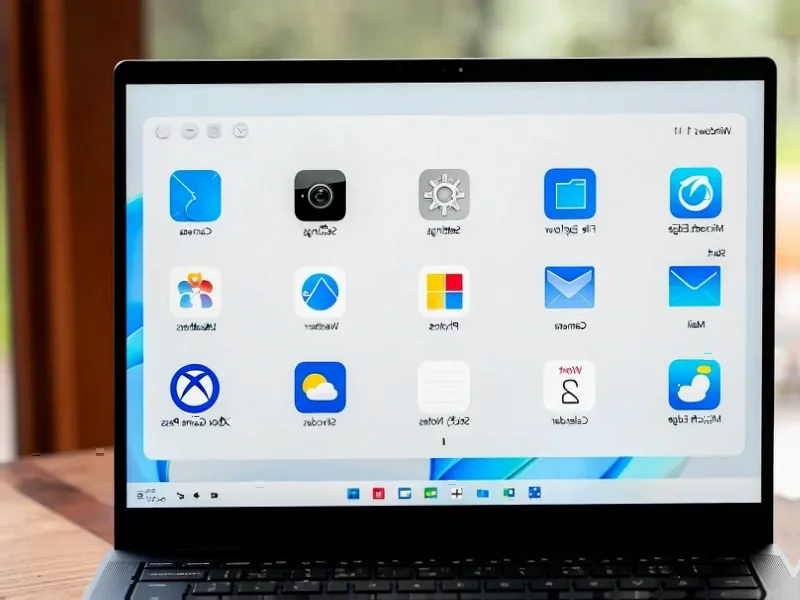According to DIGITIMES, Samsung Electronics has officially launched Samsung Internet PC in Beta testing phase, marking a significant expansion from its mobile-only browser to desktop platforms. The browser features real-time synchronization of browsing history and bookmarks between mobile and desktop, integration with Samsung Pass for seamless logins, and Smart Anti-tracking privacy protection that blocks third-party tracking attempts. Notably, the browser includes Galaxy AI capabilities for automatic webpage translation and content summarization, with Samsung planning to evolve it into a fully AI-powered browser in future updates. The Beta is currently available in South Korea and the US, with global expansion planned over time, challenging Google Chrome’s dominant 71.77% market share as of September 2025. This strategic move represents Samsung’s broader ambition to extend its mobile ecosystem to desktop computing.
Beyond Browser Wars: Samsung’s Ecosystem Play
Samsung’s PC browser launch represents far more than just another competitor in the crowded browser market. This is a strategic move to create a unified computing experience that bridges the mobile-desktop divide, something even Apple has struggled to perfect despite its ecosystem advantages. For Samsung Galaxy users, the ability to seamlessly transition between phone and computer with synchronized bookmarks, history, and login credentials addresses a genuine pain point in today’s multi-device world. The integration with Samsung Pass creates a compelling reason for users to remain within Samsung’s ecosystem rather than scattering credentials across Google, Apple, or third-party password managers.
The AI Advantage: Beyond Conventional Browsing
Samsung’s emphasis on AI-powered features positions the browser as more than just a web viewer—it’s becoming an intelligent assistant. The automatic translation and summarization capabilities directly target productivity users who consume large volumes of online content. While Chrome has been experimenting with AI features through Google’s Gemini integration, Samsung’s approach leverages its established Galaxy AI brand and could potentially integrate more deeply with Samsung’s hardware capabilities. The promise of “personalized experiences without manual input” suggests Samsung is thinking beyond reactive AI tools toward proactive assistance that anticipates user needs.
Market Impact: Who Stands to Gain and Lose
The browser market dynamics reveal an interesting opportunity for Samsung. With Chrome holding 71.77% dominance according to StatCounter data, there’s clearly room for alternatives, but Samsung’s approach differs from previous challengers. Rather than competing on privacy like Brave or on performance like Opera, Samsung is leveraging its massive installed base of Galaxy smartphone users. This creates immediate distribution advantages that new entrants lack. Microsoft Edge, which sits in third place, should be particularly concerned since it also relies on ecosystem integration but lacks Samsung’s mobile dominance. The timing is strategic too—as regulatory pressure mounts on Google’s browser practices, alternatives become more appealing to both users and regulators.
Privacy as Competitive Differentiator
Samsung’s Smart Anti-tracking feature represents a meaningful privacy advancement that could resonate with increasingly privacy-conscious users. While Apple’s Safari has built its reputation on privacy protection and Google has been gradually improving Chrome’s privacy features, Samsung’s approach of proactively detecting and blocking tracking attempts through cookies and other methods addresses growing concerns about data collection and surveillance capitalism. This positions Samsung Internet PC as a browser that doesn’t just compete on features but on fundamental values—a smart move in an era where users are becoming more aware of how their data is being used and monetized.
The Uphill Battle: Challenges Samsung Must Overcome
Despite the promising features, Samsung faces significant hurdles in challenging Chrome’s dominance. Browser habits are notoriously sticky, and Chrome’s extensive extension ecosystem represents a major barrier to switching. Additionally, Samsung will need to convince users that its browser represents more than just another pre-installed application—it needs to demonstrate clear value beyond the Samsung ecosystem. The limited initial rollout to South Korea and the US makes strategic sense for testing, but global expansion will require localization and compliance with varying regional data protection regulations. Most importantly, Samsung must maintain consistent updates and feature development to avoid the fate of other promising browsers that failed to keep pace with market leaders.




